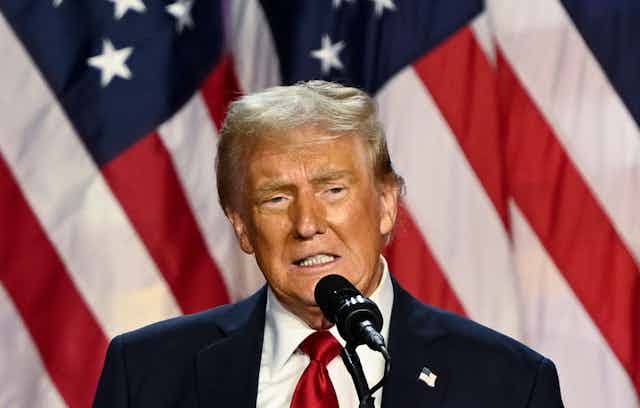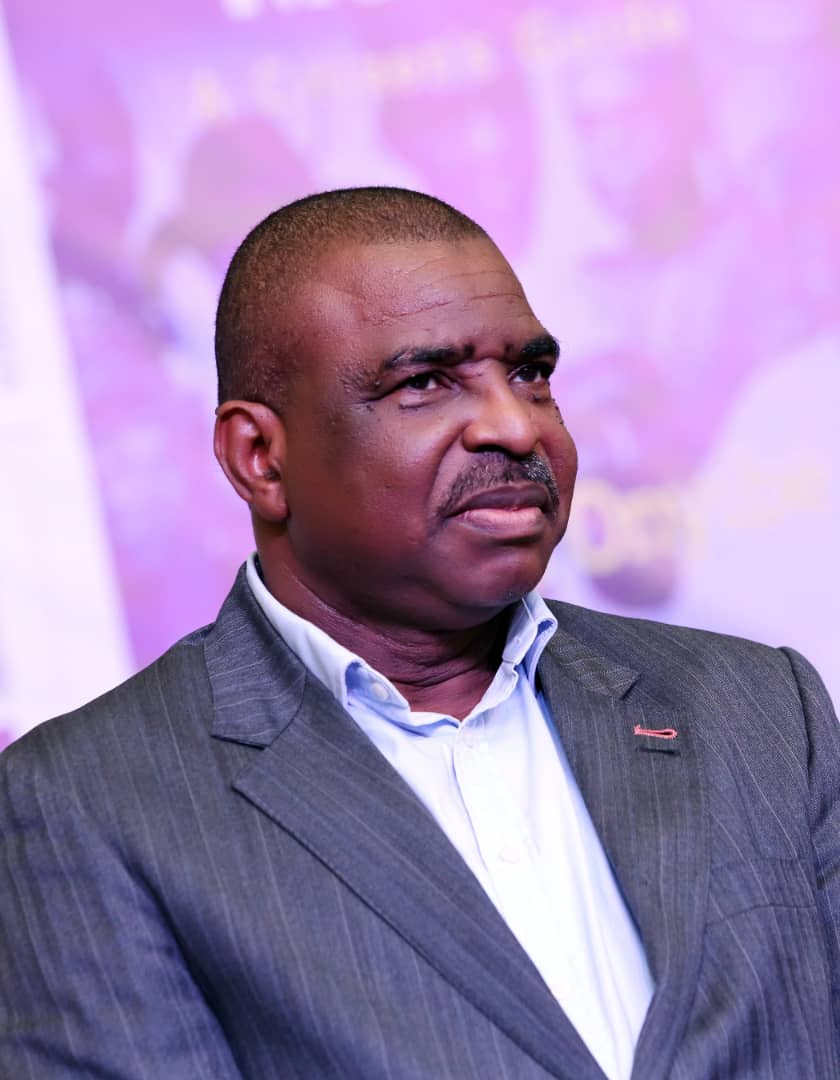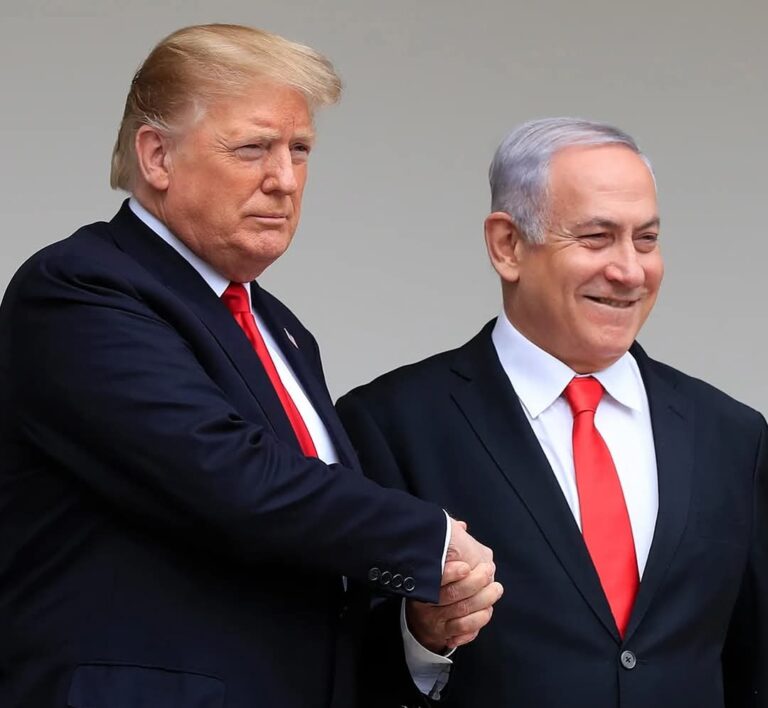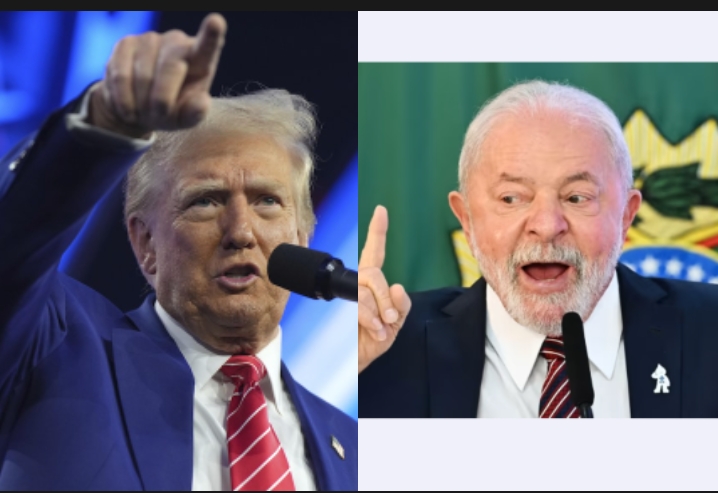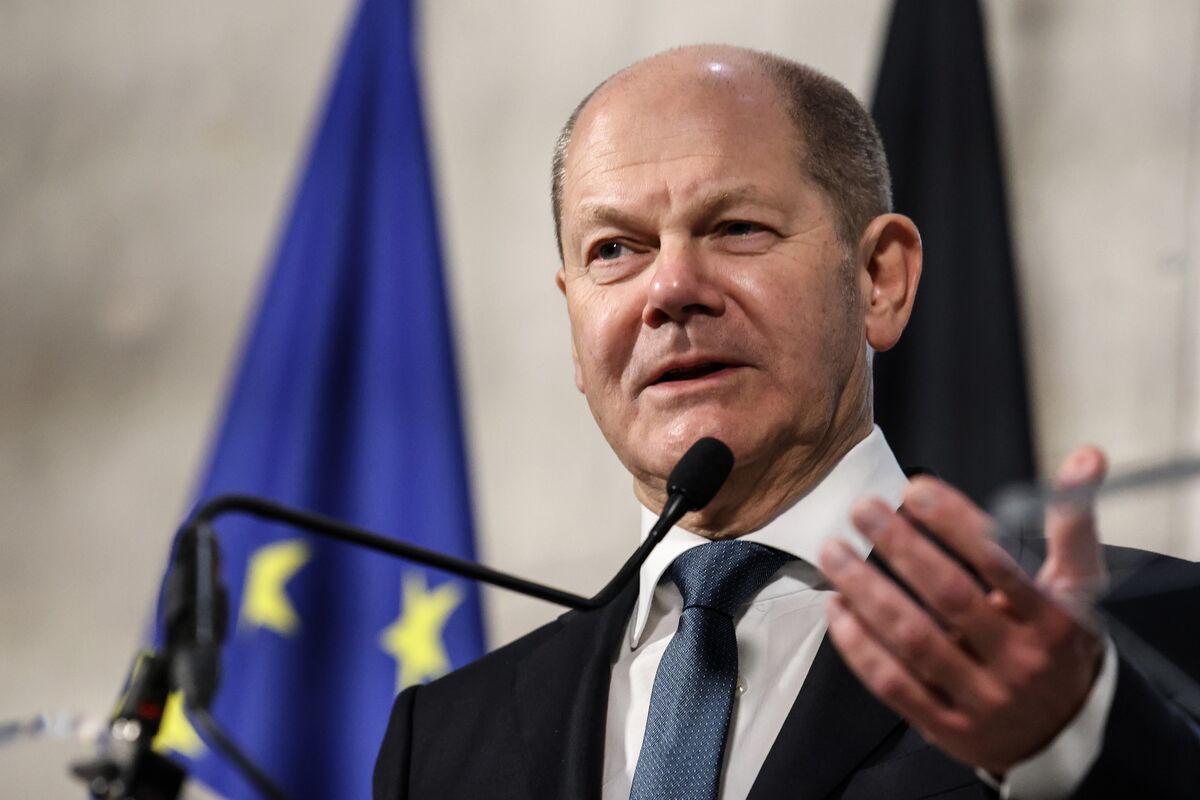President Donald J. Trump’s executive order eliminating USAID has sent shockwaves across the globe, particularly in aid-dependent nations, most of which are in Africa. In line with the saying that “when America sneezes, the world catches a cold,” many countries are now facing severe consequences due to the proposed end of US aid.
CNN’s Larry Madowo highlighted the crisis unfolding in Africa with a report on a Ugandan HIV/AIDS patient who lost access to life-saving medication following the withdrawal of USAID funding. This situation in Uganda mirrors what could happen across Africa, where the impact is expected to be devastating.
However, Nigeria appears to be an exception to this looming crisis. The country has taken a proactive approach by allocating N700 billion in its 2025 budget to support healthcare services and mitigate the effects of the anticipated aid withdrawal. Not since the tenure of Ngozi Okonjo-Iweala as Finance Minister and Coordinating Minister of the Economy has Nigeria been this well-prepared for an impending crisis. Her policies during the 2008 global financial meltdown—triggered by the subprime mortgage crisis in the US—helped shield Nigeria from the worst effects of the recession.
Similarly, Nigeria’s current strategy, led by Health Minister Prof. Ali Pate, Finance Minister Wale Edun, and their colleagues in the Budget and Planning Ministry, aims to cushion the blow of the USAID funding cut. As a result, Nigeria may avoid the severe consequences that other aid-dependent countries could face.
Given this development, my advice to other vulnerable African nations is to follow Nigeria’s example by making proactive budgetary provisions to address the new reality. Some leaders may argue that they lack the resources to provide free or affordable healthcare services, such as HIV/AIDS treatment, to their indigent populations. However, the counterargument is that they must prioritize the well-being of their citizens over personal luxuries, which they often display both at home and during international events.
Ironically, many of the leaders whose nations rely on US aid are known for extravagant lifestyles. Instead of depending on foreign assistance, they should focus on efficiently managing their scarce resources to support their people.
This was evident during the African Union meeting in Addis Ababa, where several aircraft bearing the logos and names of impoverished nations were seen on the tarmac, having transported their leaders to the summit. Ironically, many of these countries are among the largest beneficiaries of USAID assistance, which is intended to support vulnerable populations, yet their leaders continue to enjoy lavish lifestyles.
Rather than prioritizing luxury travel, these leaders should focus on the well-being of their citizens by allocating resources to essential healthcare services, such as HIV/AIDS treatment. CNN’s Larry Madowo has already warned that the withdrawal of USAID funding could have devastating consequences for those who depend on it.
On the other side of the debate are those who see USAID as more than just a humanitarian organization, arguing that it has functioned as a tool of U.S. geopolitical influence under the guise of goodwill. Now that its role as an instrument of American soft power has come to light, many—both within the U.S. (especially those opposed to foreign interventions) and globally—have rallied behind President Trump and his government efficiency czar, Elon Musk.
For these critics, the revelation that USAID not only engages in foreign interference but also serves as a platform for promoting American goods and services worldwide is a welcome development. U.S. Congressman Scott Perry, in a congressional briefing, exposed USAID’s operations, suggesting that its activities may rival or even surpass those of the CIA during the Cold War, when global influence was contested between the U.S. and the now-defunct Soviet Union. Perry’s statements align with Trump’s claim that USAID had “strayed from its original mission of responsibly advancing interests abroad.”
Had Trump not taken the drastic step of ordering Musk to review USAID’s activities, many of its controversial operations might have remained hidden. In response, the U.S. Congress has launched an investigation into what has been described as a shocking revelation. Similarly, in Nigeria, Senator Ali Ndume of Borno State—the region hardest hit by Boko Haram insurgency—has called for further scrutiny, following claims that USAID funds may have indirectly benefited terrorist groups.
The argument that foreign aid rarely helps its intended recipients is not new. Economist Dr. Dambisa Moyo, a Harvard alumna, made a similar case in her book Dead Aid: Why Aid Is Not Working and How There Is a Better Way for Africa. Against this backdrop, Trump’s push to transition from aid to trade could mark a significant shift, especially if it leads to Africa moving beyond its historical role as a supplier of raw materials.
As Trump works to rebalance global trade by imposing high tariffs to reduce deficits with key partners—Mexico ($172 billion), Canada ($63.3 billion), China ($295 billion), and major European and Indian economies—he may come to realize that U.S.-Africa trade is relatively small but heavily skewed in America’s favor. Africa is one of the few regions where the U.S. enjoys a trade surplus while simultaneously extending substantial aid.
The lack of significant African participation in global trade (less than 3%) has been cited as a key factor in the continent’s persistent poverty and disease burdens.
As Trump’s return to the White House reshapes global dynamics, two opposing forces have emerged. On one side are Washington’s political establishment figures, who opposed his reelection on November 5 and continue to resist his policies, as evidenced by the numerous legal challenges against him. Their opposition is unlikely to wane as they seek to maintain the old global order.
On the other side is Trump’s vast base of support—over 77 million Americans—who propelled him to victory in all seven swing states, securing his position as the 47th president. This unprecedented political shift is now influencing U.S. foreign policy and Africa’s economic future.
In the past two decades, no U.S. president who lost a re-election bid has returned in the next election cycle to defeat the incumbent and reclaim the White House. Given this precedent, Trump’s victory should be respected, especially since his party controls the Senate, the House of Representatives, and, to some extent, the Supreme Court.
However, as is typical in politics, the minority of voters who opposed him have been vocal in their discontent. Many of these individuals are part of the Washington establishment, which is resistant to change and closely tied to USAID. Additionally, numerous Americans benefit directly from USAID contracts, supplying goods and services that the agency is meant to provide to vulnerable populations worldwide. With Trump’s decision to scale back or eliminate USAID, their financial interests have been disrupted, fueling their opposition to his administration’s reforms.
Critics argue that dismantling USAID diminishes America’s global influence by weakening its use of soft power, which the agency represents as a humanitarian arm of U.S. foreign policy. However, their objections may be more self-serving than altruistic. After all, if their primary concern were genuine humanitarian aid, a public audit of USAID should not provoke such intense opposition—unless those protesting have hidden agendas.
A key question arises: Why do establishment figures in the U.S. and abroad believe that American influence can only be exerted through USAID? Why not prioritize trade over aid? Since Trump’s return to the White House on January 20, his administration has shifted U.S. foreign policy toward emphasizing high trade tariffs and reducing aid.
Reflecting on historical patterns, my master’s thesis at Tufts University’s Fletcher School of Law and Diplomacy—Darfur: Why the West Failed to Help—analyzed global conflicts over the past century. I traced how competition for natural resources, dating back to the Rockefeller and Rothschild families’ dominance in the oil industry, fueled international crises. One of the most devastating consequences was the 1915 Armenian genocide, reportedly carried out under the influence of these powerful industrialists.
In this nearly 20-year-old thesis, which I am now developing into a book titled Darfur-Sudan: Why the Superpowers Failed to Help – Global Power Dynamics and Humanitarian Crises, I argue that conflicts over resource control often stem from unfair trade practices. The failure to establish equitable trade relations has led to deep resentment, culminating in acts of terrorism, such as the September 11, 2001 attacks, where extremists from regions long exploited by global powers targeted the U.S. in what they perceived as a response to economic and political oppression.
Unfortunately, little has changed. The same economic disparities that have plagued Africa for decades remain unresolved. Trump’s “America First” agenda, which seeks to balance U.S. trade by imposing tariffs on countries like Mexico ($172 billion deficit), Canada ($63.3 billion deficit), and China ($295 billion deficit), is disrupting both domestic and global economic systems.
As I have previously argued, Africa should not be treated as a charity case but as a legitimate trade partner. The continent is home to approximately 30% of the world’s mineral resources, including:
•78% of global diamond reserves
•89% of platinum
•81% of chrome
•80% of coltan
•70% of tantalum
•40% of gold, copper, and platinum
•60% of cobalt
•20% of uranium and lithium
•10% of the world’s oil reserves
These minerals are crucial for both traditional industries and emerging green technologies. Yet Africa continues to be viewed primarily as a source of raw materials rather than a participant in value-added production and global trade.
A recent report by the African Policy Research Institute (APRI), Mapping Africa’s Green Mineral Partnerships, highlights existing agreements that allow industrialized nations—including the U.S., China, the UK, Saudi Arabia, Turkey, Russia, India, South Korea, and Japan—to extract Africa’s resources. However, these relationships often resemble exploitative colonial-era practices rather than equitable trade partnerships.
This situation echoes the 1884–85 Berlin Conference, where European powers divided Africa for resource extraction with little regard for the continent’s long-term development. Such an approach must end. As Nigeria’s former Head of State, General Murtala Muhammed, stated in his landmark 1976 speech at the Organization of African Unity (OAU) Summit in Addis Ababa, Africa deserves fair trade, not continued exploitation. Nearly 50 years later, his words remain relevant.
Trump’s new world order—ending USAID’s unchecked influence and promoting self-reliance among nations—aligns with this perspective. His stance that “every nation should fend for itself” may seem harsh, but it is ultimately a fair proposition. However, African nations cannot achieve true self-sufficiency if they remain trapped in a cycle of raw material exports without the ability to develop industries that process these resources into finished goods.
This dependency on aid rather than trade has kept Africa in a state of economic stagnation, plagued by poverty and disease. In contrast, after World War II, the U.S. helped Europe rebuild through the Marshall Plan, proving that strategic investment—not just aid—can create lasting economic stability. Africa deserves a similar approach, where trade and industrialization replace reliance on foreign assistance.
Africa deserves support from the West, considering that both Europe and the U.S. built their wealth by exploiting the continent during the transatlantic slave trade. Natural resources—including crops, gold, and other valuable minerals—were extracted, and millions of Africans were forcibly taken to provide labor that contributed to the economic rise of the Western world.
Despite ongoing calls for reparations, Africa has yet to receive meaningful compensation. This is in stark contrast to Germany, which provided reparations to Israel for the Holocaust, and the U.S., which implemented the Marshall Plan to help rebuild Europe after World War II, even though it was not directly responsible for the devastation. Given that America benefited significantly from African slaves who played a key role in its development, it would not be unreasonable to expect Trump to address this historical injustice. One way to do so would be through strategic investment in infrastructure projects that could help lift Africa out of its current economic challenges.
At a recent reception held at the Nigerian Institute of International Affairs (NIIA) to honor Professor Bolaji Akinyemi’s return as chairman of the council, he playfully questioned my strong support for Trump. The distinguished diplomat—renowned for his signature bow tie, which he still wears well into his eighties—seemed curious about my stance.
In response, I explained that, given the difficult path Trump took to reclaim the White House, he appears to be a leader determined to challenge the status quo and, in many ways, “save the world from itself.” I ended on a lighthearted note, telling him not to be surprised if a Trump Tower soon becomes part of the skylines of Lagos or Abuja.
The remark briefly stunned Professor Akinyemi, a statesman known for his contributions to Nigeria’s global diplomatic influence. As the architect of the Concert of Medium Powers, the Technical Aids Corps (Nigeria’s version of USAID), and the mind behind the controversial Black Bomb project, he was once at the center of Nigeria’s foreign policy strategy. Yet, while the idea of Trump making a direct mark on Africa may seem far-fetched, it is not entirely impossible.
Some may allege that Trump does not like Africans and cite a fake news that he reffered to Africa as ‘Shit hole country’ which is a phantom because it remains unproven with irrefutable evidence. The truth is that Trump does not dislike Africa or its people . That is evidenced by the fact that when the legendary and iconic Nelson Mandela of South Africa visited the US when he was released from South African jail, it was Trump’s private jet that was made available to him to travel around the US. So, Trump has a heritage of doing good to Africans and the continent to which he has currently established fillial relationship.
Magnus Onyibe, a public policy analyst, author, democracy advocate, development strategist, alumnus of the Fletcher School of Law and Diplomacy, Tufts University, Massachusetts, USA, and a former commissioner in the Delta State government, (2003-2007).
